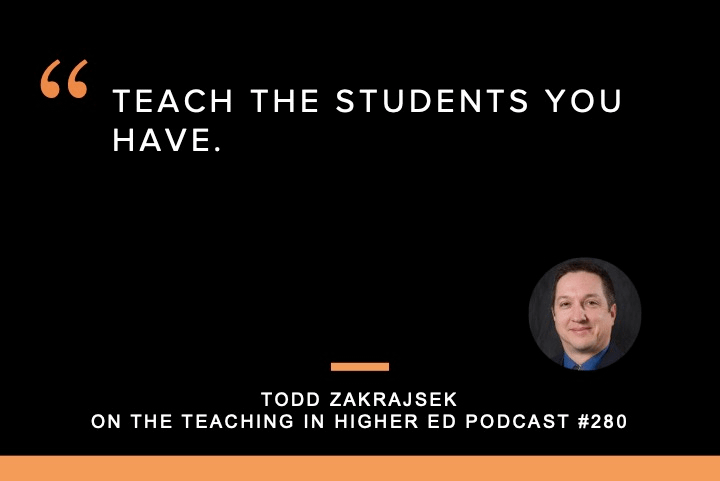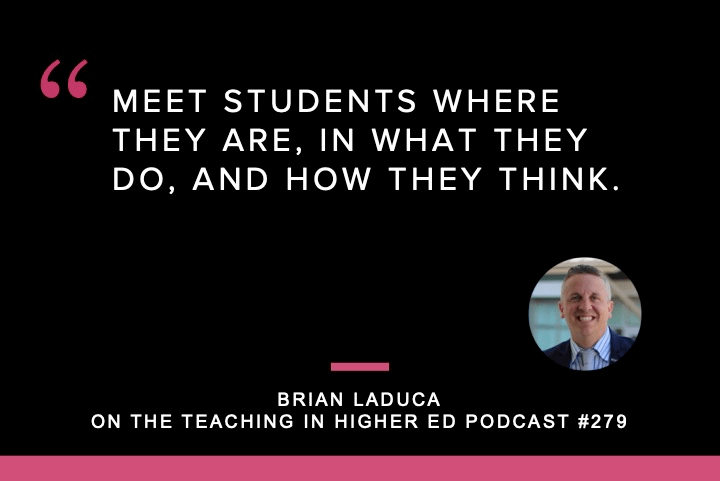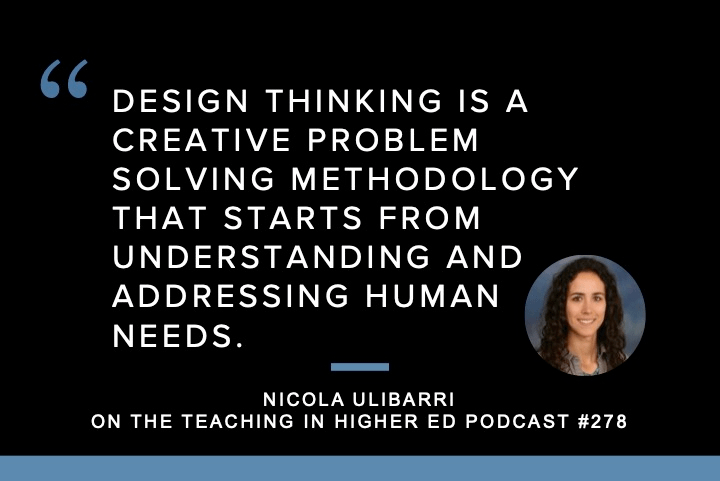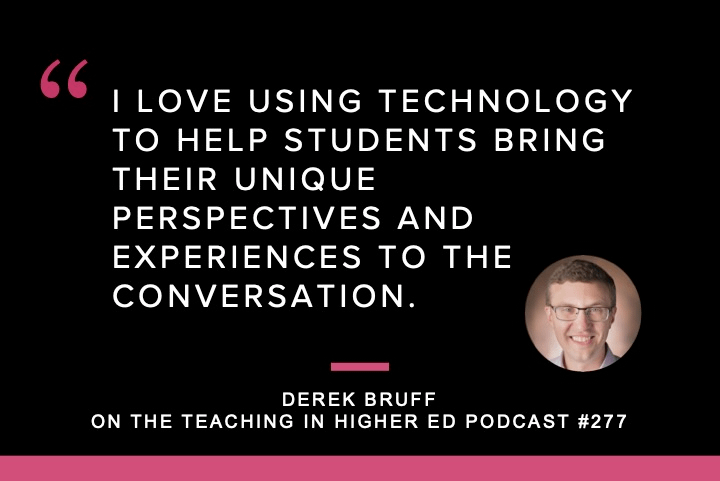Bonni Stachowiak discusses homelessness and housing insecurity in higher education with Rashida Crutchfield and Jennifer Maguire on episode 281 of the Teaching in Higher Ed podcast.
Quotes from the episode
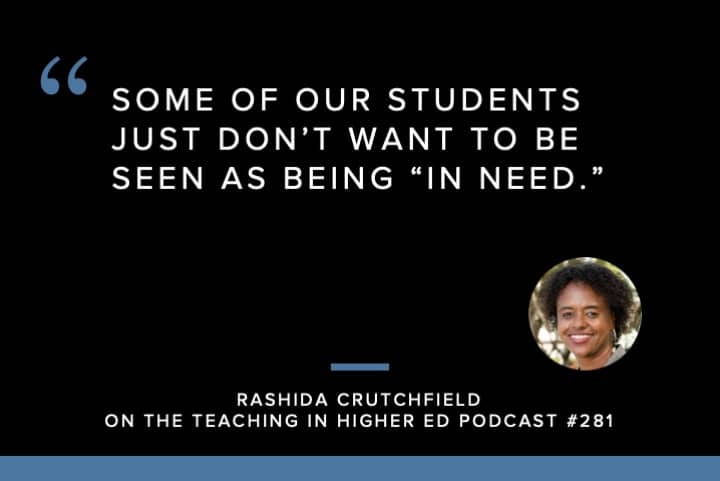
Some of our students just don't want to be seen as being “in need”.
-Rashida Crutchfield
It is that mobility and constant insecurity that is a trauma experience.
-Rashida Crutchfield
It is that fear and stress response that has short and long term impacts on our physiology that manifests in many different ways.
-Rashida Crutchfield
Making the time to do something that is different has given me so much more energy, creativity, and ability to be present to my students.
-Jennifer Maguire
